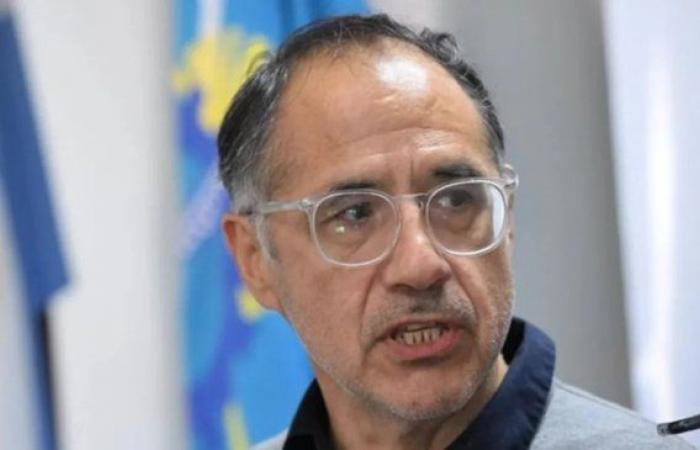In dialogue with Invincibles, by FM EL CHUBUTWhisky said that “We are concerned about vaccination in people over 65 years of age and people who have risk factors.”
“Pneumonia was one of the causes of the highest mortality until 2022, in 2023 they moved to third place, first of all tumor and cardiovascular causes,” the secretary mentioned, also pointing out that “in the number of influenza cases we were above of the historical”.
Given this situation, “we had few seriously ill patients hospitalized or in intensive care, and there was no collapse of hospitalizations, which implies that many of the cases were vaccinated so they have minimal symptoms,” he explained.
“Also, the entire contingency plan for bronchiolitis has been put together, and we have not been overwhelmed in the emergency room, but winter is just beginning and we have to be on high alert,” he said.
“Pneumonia was one of the causes of highest mortality until 2022, but in 2023 it moved to third place, leaving tumor and cardiovascular causes,” the data was shared.
For what was mentioned above, “In Chubut, it was the main cause of mortality and that meant a significant drop in mortality in the province. It was all the adjustments that the system made and one of those was to improve vaccination, but we are still low there.”he said in reference to the low inoculation rates in the provincial territory.
For this reason, he later called: “We have all possible accessibility, vaccinations in all CAPS and hospitals are open on weekends.”
DEPLOYMENT IN TERRITORY
With permanent surveys in each of the health areas, the medical team of the Ministry of Health was present in towns such as Los Altares, Paso de Indios, Esquel and Colan Conhue “raising demands in the territory” and solving “logistical, radio, ambulances and human resources”.
During these visits, “we find complex things, small things that can be resolved and that were not done due to lack of paperwork or because they were left on some desk.” “That makes me very angry, but beyond that we have to resolve it,” he said.
Regarding the availability of medical professionals, Wisky analyzed that “we are not optimal, but we are much better.” In this sense, “we are putting together a program to have doctors and nurses on a rotating basis” in the smaller towns.
However, he predicted that “we will experience this problem of a low number of professional offers for many years until residencies and the production of professionals are stabilized.”
AMBULANCES
With the visit of Governor Kicillof and the announcement of the delivery of ambulances for the provincial health system, Wisky confirmed that “we are waiting for them to be here by the middle of this month and we are also going to announce telemedicine equipment, with the idea of presenting it in the same date,” he announced.
Regarding this equipment, he assured that it will be allocated primarily to Primary Health Care Centers, and specifically “such as the Amaya (in Trelew) where 30% of the population is served, it will be very accessible for residents and will serve to relieve the hospital shifts that end up overcrowded,” he stressed.
Finally, he reported that “we are waiting for the two Seros ambulances for the mountain region, where many referrals are made to Trelew or Comodoro,” he said.
NUTRITION CHART
The provincial health department conducted a review of malnutrition cases, highlighting that “luckily in Chubut we do not have severe cases,” but rather “a change in eating habits.” That is, “you go from eating something more varied to eating something more centralized and certain nutrients disappear, which in the long term affects your quality and quantity of life,” it said.
Those who report these indicators “are spectacular and are the community workers who work with the most vulnerable 10 or 15% of society.”
On the other hand, the Ministry is in talks with Family and Education “to see if essential canteens can be maintained,” Wisky said.
“For us, the most important vaccine so that they do not get sick is that they have education and income, but when they do not meet the basic basket there must be the presence of the State,” he stated.


